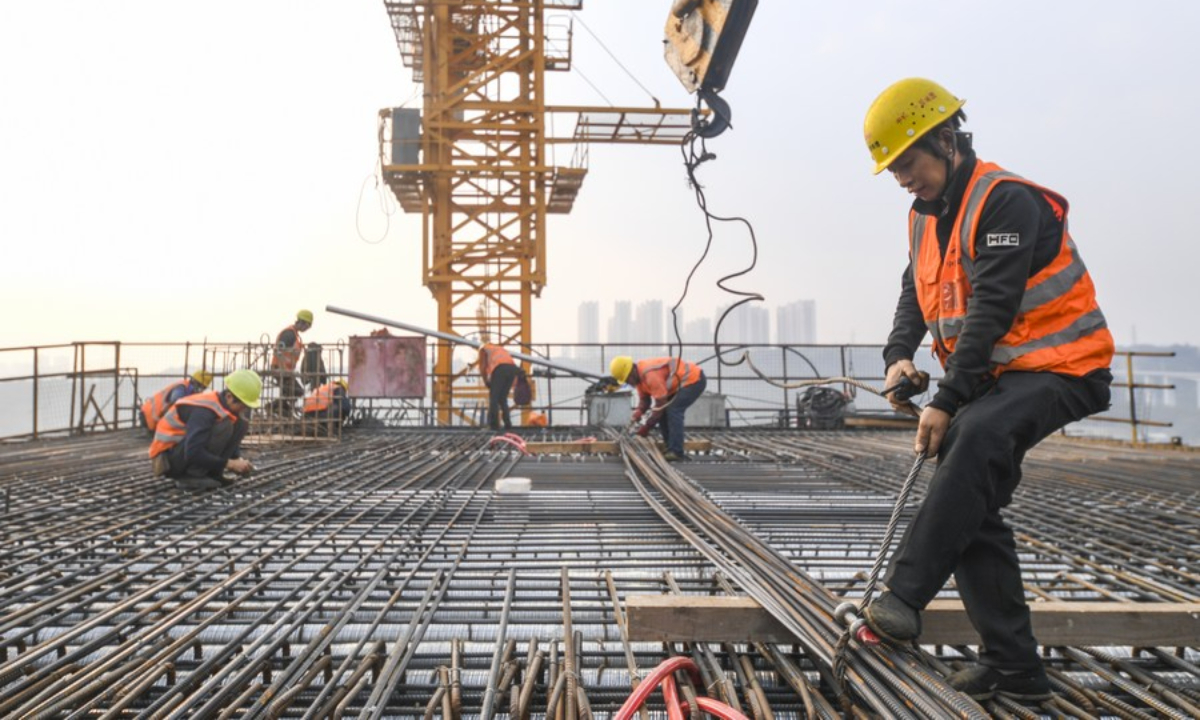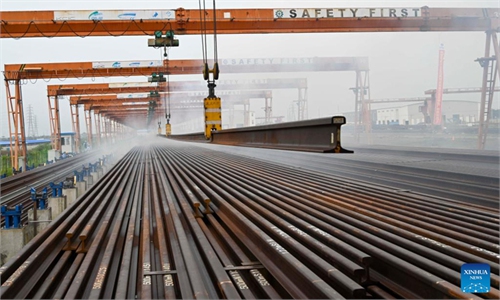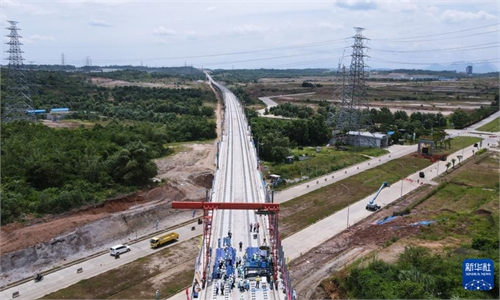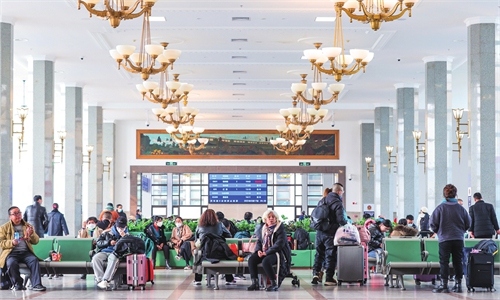Investment in transport continues to increase in 2023, supporting economic growth: analysts

Workers are on duty at the construction site of the Huafu mega bridge at the Sichuan-Chongqing section of the Chongqing-Kunming high-speed railway in southwest China's Chongqing Municipality, Nov 28, 2022. Photo:Xinhua
Many major railway projects are in progress across China, and several provinces have released plans for railway construction. Analysts said that effective investment in transport will continue to increase in 2023, providing strong support for economic growth.
China Railway, the national passenger and freight railroad operator, is scheduled to put more than 3,000 kilometers of new railway lines into operation in 2023, of which 2,500 kilometers are high-speed lines.
Railway construction is a major category of infrastructure investment, showing China's commitment to developing its transport network, said analysts.
The operator said it will accelerate the construction of modern railways and promote planning and construction with high quality. National key railway projects, including the Sichuan-Tibet Railway linking Southwest China's Sichuan Province and Southwest China's Xizang (Tibet) Autonomous Region, will be promoted.
A number of railways, including the Guizhou-Nanning high-speed line and the Lijiang to Shangri-La section of the Yunnan-Tibet Railway, are expected to open this year.
Transportation investment plays an important role in driving China's economy, Wang Dongwei, a director at Zhongtai Securities Co, told the Global Times on Tuesday.
"The development of transport infrastructure can improve connectivity, reduce transport costs and boost economic growth. Investment in transport helps create jobs, increase consumer spending and stimulate demand in related industries such as construction and manufacturing," said Wang.
South China's Guangdong Province said it will invest 110 billion yuan ($16 billion) in railway construction in 2023, an annual rise of 12 percent.
Investment in railway construction in the Yangtze River Delta is set to reach 90 billion yuan in 2023, according to the China Railway Shanghai Bureau on February 10. The investment will ensure the operation of five intercity railway projects, the construction of 22 major railway projects and the start of construction of five projects.
In 2022, China's fixed-asset investment in railways totaled 710.9 billion yuan, and the country put 4,100 kilometers of new railway lines, including 2,082 kilometers of high-speed lines, into operation, according to statistics from China Railway released in January.
By the end of 2022, China had 155,000 kilometers of railways in operation, including 42,000 kilometers of high-speed railways.
Apart from railways, China's fixed-asset investment in transport grew rapidly in the past decade, increasing from about 2.05 trillion yuan in 2011 to 3.6 trillion yuan in 2021, according to data released by the Ministry of Transport (MOT).
From January to November 2022, China completed 3.5 trillion yuan of fixed-asset investment in transportation, up 5.8 percent year-on-year.
North China's Hebei Province plans to invest 103.5 billion yuan in transportation construction in 2023. Southwest China's Chongqing Municipality plans to invest more than 110 billion yuan in transportation construction, up 10 percent year-on-year from the planned investment in 2022.
It is estimated that the investment of China's transport fixed assets will exceed 4 trillion yuan in 2023, Chen Jia, an independent analyst on global strategy, told the Global Times.
Zheng Lei, chief economist at Samoyed Cloud Technology Group, told the Global Times on Tuesday that effective investment in transport may exceed 10 trillion yuan in 2023.
Analysts noted that the MOT issued the first batch of plans for transport fixed-asset investment for 2023 on November 20, 2022, which was far earlier than in 2021. The number of projects and the scale of funds were also higher.
According to the infrastructure surge reflected in the excavator index in January, investment in the transportation sector will grow about 5.5 percent in 2023, said Chen.



